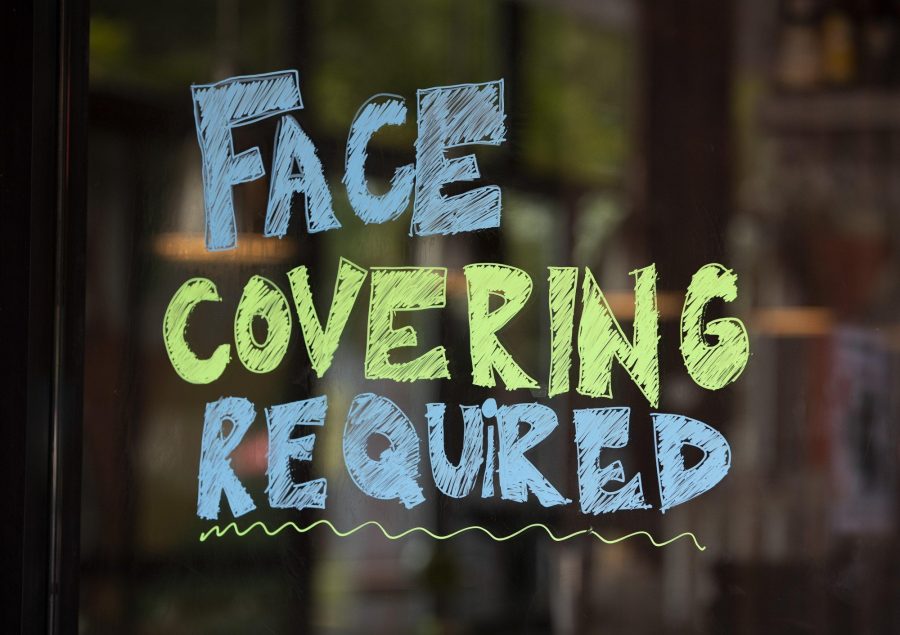
As universities across the country gear up for the start of the fall semester and students move into dorms, off campus living situations or sorority and fraternity housing, one theme is shockingly common — outbreaks of COVID-19 and questionable university responses.
Michigan State, Notre Dame and three institutions in North Carolina — including the University of North Carolina at Chapel Hill — were the latest to transition to completely online classes. The most notable among them was UNC Chapel Hill, which transitioned after the university’s attempts to start in-person learning were interrupted by a series of COVID-19 outbreak clusters in fraternity and sorority housing and in multiple dormitories. UNC Chapel Hill’s current COVID-19 cases nears 650 students, staff and faculty.
RELATED: Campus reentry update: Robbins and Carmona discuss downward COVID-19 trends and dorm move-in
Attempts by universities to open in-person learning have been openly criticized as moves that endanger the lives of students while creating public health risks. Johns Hopkins University politics professor Yascha Mounk detailed the dangers of a campus reopening causes in the Atlantic:
“Therefore, many colleges will likely, within weeks of reopening, place a quickly expanding set of students under lockdown. And if these measures fail, the colleges will close on short notice. At that point, thousands of students— many of them infected with COVID-19 — will board trains and planes to go home, spreading the virus to their families.”
UNC Chapel Hill’s Daily Tar Heel echoed the concerns of students during the first week of class, during the reporting of campus outbreaks, “We’re angry — and we’re scared. We’re tired of the gaslighting, tired of the secrecy, tired of being treated like cash cows by a University with such blatant disregard for our lives.” Dean Barbara Rimer from UNC’s School of Public Health sent a letter to the university administration saying, “the number of clusters is growing and soon could become out of control. It is time for an off-ramp. We have tried to make this work, but it is not working.”
However, schools like the University of Arizona are continuing returns to on-campus classes, even when expected numbers of on-campus students are near 20,000.
RELATED: New research shows asymptomatic carriers have similar viral load, infection spreads via aerosol
Questions are also arising nationwide about how to control parties and large gatherings when students return. East Carolina University in Greenville, North Carolina reported a party with nearly 400 people. Tucson city officials are already concerned that the neighborhoods surrounding the university will become hot beds for COVID-19: “While the university can do their best to control somewhat the activities on campus, once they leave campus, all bets are off and it becomes the honor system,” said Councilman Steve Kozichik to CBS KVOLD. “There are examples all over the place already of kids gathering up, not masking up, in big groups and just not taking this seriously.” The University of Arizona already has the reputation of being one of the top party schools in the country.
The UA so far has an honor system plan to suspend any students caught partying on campus. However, as many other universities are realizing, there is no way to regulate off campus parties and gatherings. Police in Boston near Northeastern University when asked about party enforcement responded, “For us, it isn’t about COVID. Our officers will not be out there being the social distancing police.” TPD has yet to release any statements on public health procedures during enforcement of parties and large gatherings.
And while the University of Arizona has taken proactive measures against the virus such as testing on-campus students and allocating quarantine dorms for COVID-19 positive cases, COVID-19 has, and will continue to reach students in dormitories. As mentioned above, Arizona dormitory Likins Hall has already reported cases through wastewater testing. Other universities who have made similar moves have reported clusters in on campus dormitories — including recent dormitory clusters from the University of Utah and Utah State.
RELATED: ‘No celebration, no victory lap. We’re going to stay the course’: The story of Arizona’s 180
The risk for COVID-19 contraction in campus dormitories, off-campus housing and Greek life living situations is serious. Arizona is expecting a heavily populated campus known for throwing frequent and large parties. Regulation of public health standards in regard to social distancing and large gatherings is, at best, a suspension based honor system. The signs are here; it is not a matter of if COVID-19 comes to the University of Arizona, but when. When will we transition online and how many students, faculty and staff will be infected before we do?
UNC Chapel Hill, with one of the best public health schools in the country, is reporting more daily COVID-19 cases than some entire countries.
When the outbreaks happen, and the transition online comes, more students will begin to ask, if they have not asked already, if paying full tuition for an online university is just.
One other dilemma that may surface is how to get students already moved into on-campus students out efficiently. Efforts to evacuate UNC Chapel Hill dormitories have left some students homeless, stuck in hotels and in between housing situations as the university closes dormitories. Debates are still going on whether students will receive housing refunds.
So will we learn from the failures of universities like UNC Chapel Hill, a university with one of the country’s best public health schools, reporting more daily COVID-19 cases than some entire countries?
The question we have to ask ourselves and our university administration is not if, but when — when will we switch fully online and will the financial and housing rights of students be respected or oppressed when we do?
What we have to deal with now is how many in our university will get infected and suffer from COVID-19 before it happens.
Ian Tisdale is a news reporter studying PPEL (philosophy, politics, economics, and law) and global studies. Follow Ian Tisdale on Twitter









